With all the diet trends floating around the internet, it can be hard to figure out the best way to eat. One common diet recommendation is to eliminate healthy fats, but that comes with major consequences, discussed in this post. Having healthy fats in your diet has many benefits. Here is a list of healthy fat foods to add to your diet.
What Are Dietary Fats?
When you hear the word fat you likely assume it is bad and should be avoided but that is not always the case. There are different types of fats. Some of these fats have health benefits while others can lead to health problems.
The calories that you consume come from three nutrients: fats, proteins, and carbs. Just like your body needs proteins and carbs to perform certain functions, it also needs fats. Having fat in your diet is essential for helping your body absorb vitamins. Healthy dietary fats also promote brain and heart health.
Most people think about fat as being something they do not want around their waistline, believe it or not, you do want certain types of it in your body. Not all fats are responsible for raising cholesterol and causing health problems.
Understanding Healthy vs. Unhealthy Fats
By looking more carefully at our food choices we can make sure we have a good balance of fat in our diet. When you are looking at the nutritional content of your food you will want to be on the lookout for the three types of fats. Some food items will have none and some have a combination of them.
There are 3 types of fats:
- Saturated Fats
- Unsaturated Fats
- Trans Fats
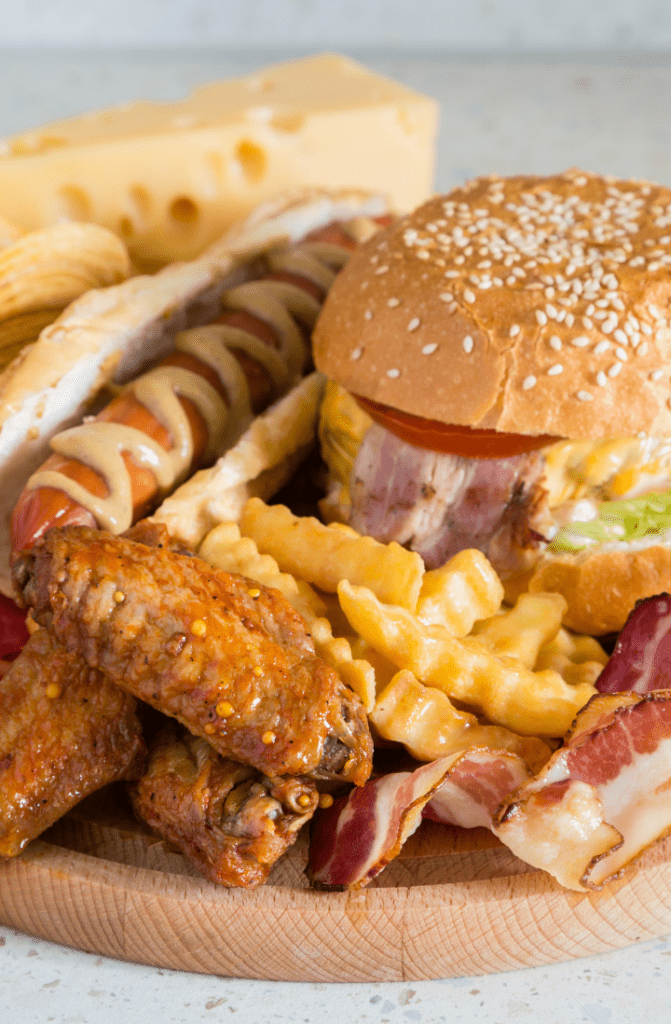
What are Unhealthy or “Bad” Fats?
Trans fats and saturated fats are the types of fat that you should try to consume less of. These fats are the ones that are known to cause weight gain, clogging of arteries, and can increase your risk of heart and other diseases.
While consuming these types of fat in moderation will not be detrimental to your diet, having an excess of them can keep you from losing weight or living your healthiest possible life. You want to be especially careful about consuming these types of fat if you have a history of heart disease or high cholesterol in your family or if you yourself have had issues with these things in the past.
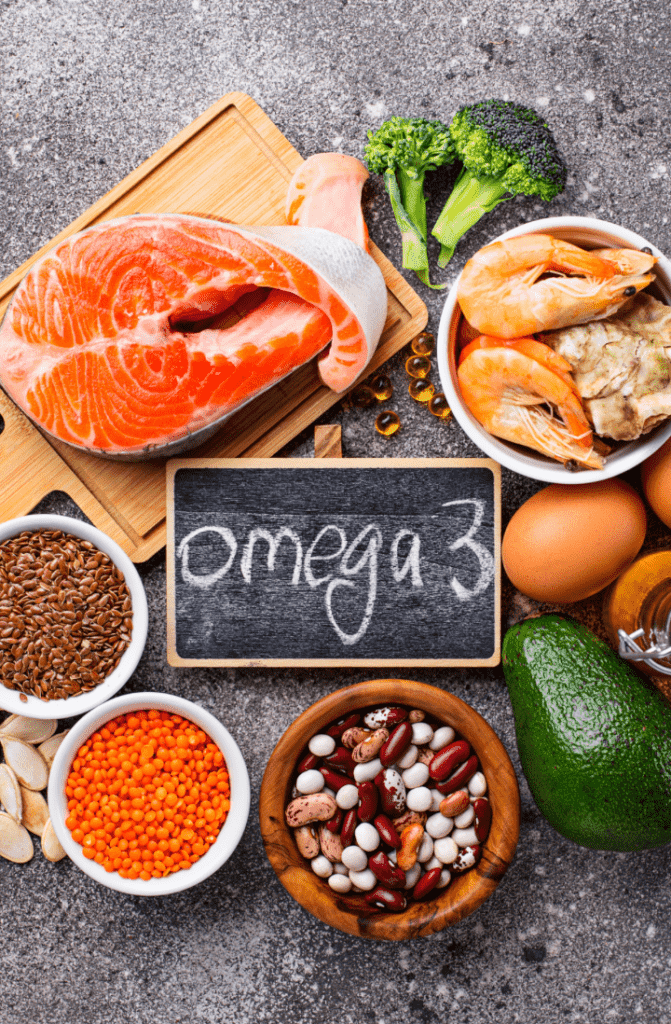
What are Healthy or “Good” Fats?
As mentioned previously, not all fats deserve to have a bad rap. Consuming healthy fats on a regular basis can actually lower your cholesterol and improve many of your body’s necessary functions. It is even possible that adding the right amount of healthy fats to your diet will promote weight loss.
The “good” fats to consume are unsaturated fats and omega-3 fatty acids. Believe it or not, eating the right amount of healthy fats can actually promote mood management, mental clarity, high energy levels, and weight control.
Ensuring that omega-3s are a part of your daily diet is a great way to stay decrease your chances of developing cardiovascular disease or myocardial infarction. The two types of omega-3s, EPA and DHA, should be consumed on a regular basis. Fish is well known for containing both types of omega-3s.
Why You Should Include Healthy Fats In Your Diet
The benefits of including healthy fats in your diet goes beyond helping you to look a certain way or manage and avoid certain health issues. There is evidence that having a diet with a healthy balance of omega-3s can lead to healthier brain functioning and mental health.

Brain Functioning and Mental Health
Healthy fats are known to have a positive impact on brain function. DHA, which is found in omega-3s, has been shown to encourage healthy brain development and functioning. It makes sense that breast milk is high in DHA since it is so important for infant development. There is some evidence that mothers who consume regular amounts of fish (high in DHA) during pregnancy increase their DHA levels and transfer it to their fetuses. Early diet can have some indication of brain functioning down the road.
Mental health can also be impacted by the consumption of healthy fats. A diet that is imbalanced in fatty acids could be linked to both behavioral and learning disorders. There is also some evidence showing that a lack of fatty acids in your diet could be correlated with a higher likelihood of depressive symptoms and other mental disorders.
Which Foods Contain Healthy Fats?
Now that you know the array of benefits including healthy fats in your diet can have, you are probably wondering where these healthy fats can be found and how you can incorporate them into your meals and snacks.
Let’s get into it…
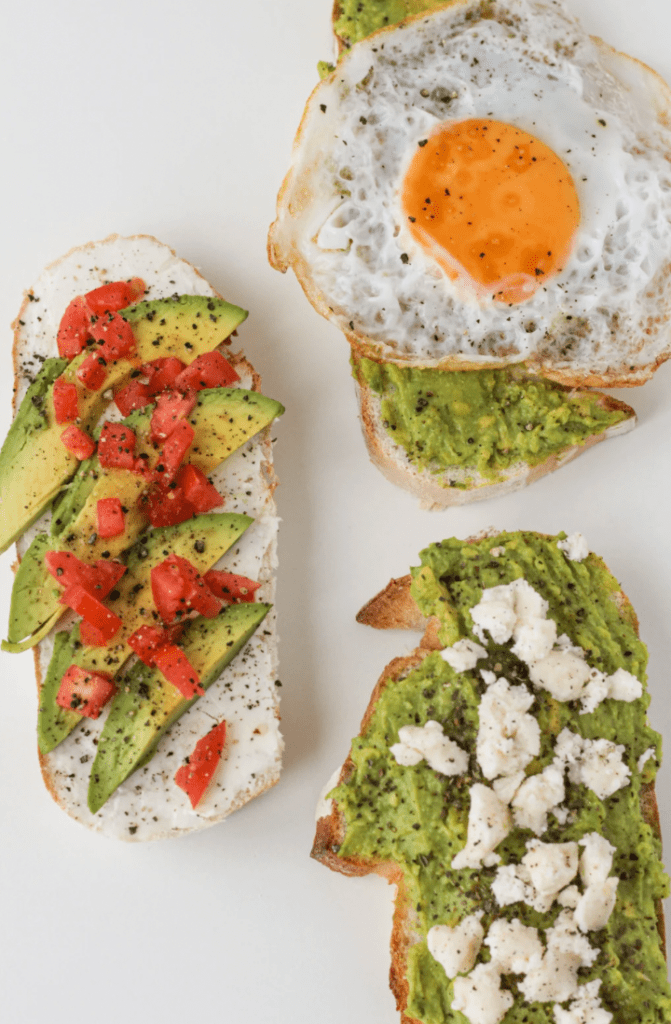
1. Avocado
This commonly consumed fruit is well known for being a wonderful toast and salad topper and is full of health benefits. Avocado is probably the food item most commonly associated with healthy fats. A whole average-sized avocado contains about 23 grams of largely monounsaturated fat. It is also full of fiber which is great for gut health. It contains nearly 40% of your daily recommended fiber intake. It is rich in vitamin E and healthy proteins as well!
Avocado is very diverse and can be eaten as both a savory and sweet snack. Try slicing up avocado and putting it on toast with everything bagel seasoning and eggs. You can also add it to your favorite salads, bowls, and sandwiches which is a great way to add creaminess and flavor.
You can also cut the avocado into chunks and freeze it to add to your favorite smoothies. Throw some frozen banana, avocado, flax seeds, protein powder, and your milk of choice into a blender for a creamy healthy treat.
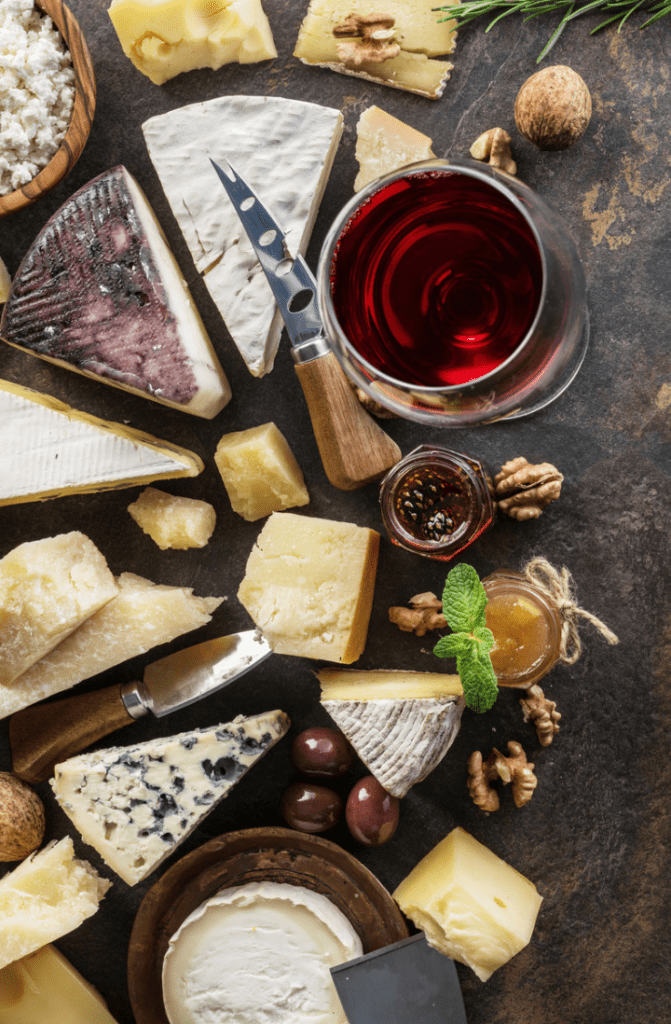
2. Cheese
Say no more! While it is important to consume cheese in moderation because it can cause some people's gut issues and is not a completely calorie-conscious choice, cheese does have its benefits.
Cheese is packed full of vitamin B12 and calcium which are essential components of a healthy diet. It is also full of good fatty acids that can help to keep diseases like type-2 diabetes at bay. It is a good idea to consume only a few ounces a day.
Try pairing a cheese stick with some whole grain and seed crackers for a mid-day pick-me-up or sprinkling a serving of cheese on top of your favorite bowl of soup or salad. Keep in mind, one serving of cheese is typically one ounce, which is about ¼ cup when shredded or one average-sized slice.

3. Dark chocolate
This is probably not something you planned to see on the list but are excited it’s here. Dark chocolate is a great source of healthy fat. Again, in moderation.
Eating around one ounce of dark chocolate per day can have multiple health benefits. The fat content of chocolate comes from cocoa butter which is full of heart-healthy fats. Dark chocolate also contains antioxidants and fiber.
Try sprinkling one ounce of dark chocolate onto a rice cake with almond butter or making a trail mix with dark chocolate, nuts, and pretzels to have as a snack.

4. Whole eggs
Too often in the health and fitness industry, people talk about egg whites only. While the yolk does contain the majority of an egg's calories, consuming the whole egg has benefits. Eggs are high in protein and can improve your heart function and lower bad cholesterol levels.
The average egg contains only 5 grams of fat and less than 2 of those are saturated fats so the benefits outweigh the costs. Consume the whole egg! If you want more protein but want to be calorie conscious, consider mixing one whole egg with one or two additional egg whites.
You can add a scrambled egg to your favorite rice dish or eat hard-boiled eggs on the go with your favorite seasoning. They are pretty hassle-free and do not need much doctoring up.
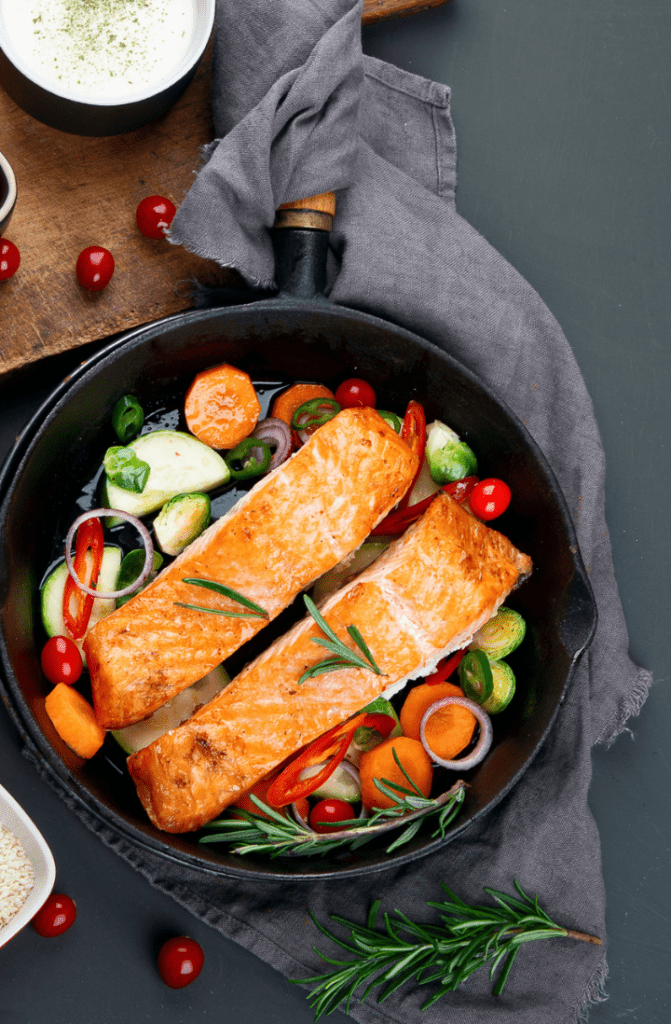
5. Fatty fish
Love it or hate it, it’s full of healthy fats. Fish may not be everyone’s cup of tea but there is no doubt that it is absolutely one of the best healthy high-fat foods out there. Salmon and sardines are both great examples of foods high in omega-3 fatty acids.
Adding these fish products to your weekly diet will improve your overall heart health. Research shows that people who live in communities that regularly consume fish have high levels of general health and live longer.
Salmon can be prepared in many ways, whether you eat it wrapped up in your favorite sushi or grill it and lay it over a bed of rice with fresh mango salsa, it will fill your belly and make your heart happy.
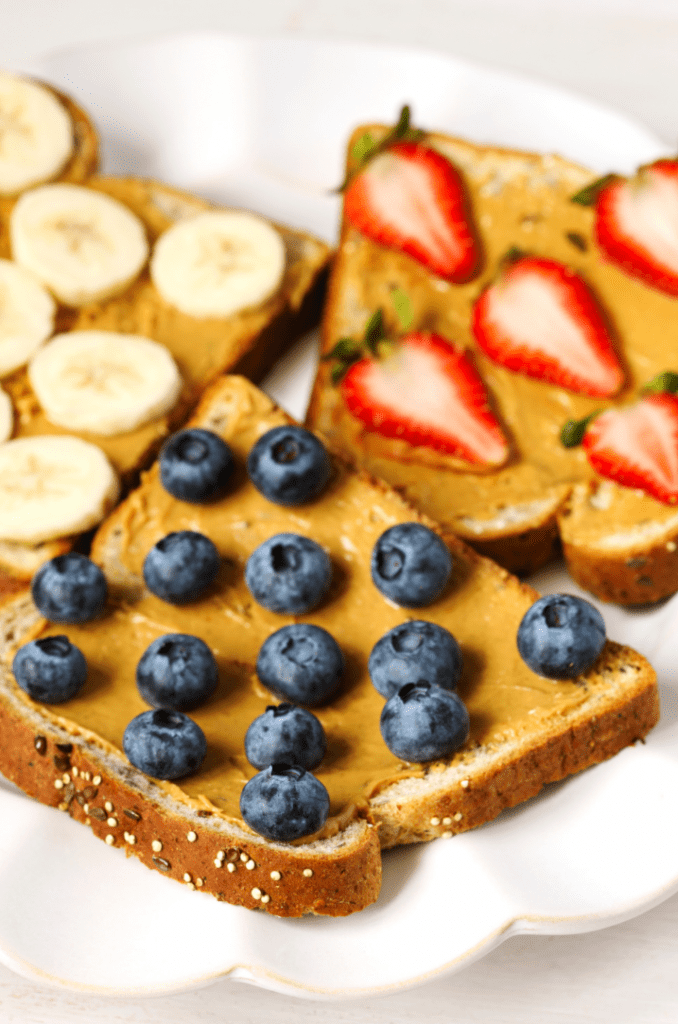
6. Nuts, seeds, and nut and seed butter
A personal favorite of many, eating nuts, seeds, and nut and seed butter is a great way to add healthy fat to your diet. While nuts and seeds have a high-calorie content, which is because they are high in fats, these fats are the kind you want to intake.
If you are trying to be conscious of your calorie intake, consider limiting yourself to 1 or 2 servings a day. One serving of whole nuts is typically about 1 ounce or around ¼ cup. For nut and seed butter the serving size is typically 2 tablespoons.
You can toss your favorite nuts into salads, yogurt parfaits, or trail mix for added flavor and crunch. You can also spread nut and seed butter onto your favorite toast or crackers or add a dollop to your morning protein shake or smoothie.
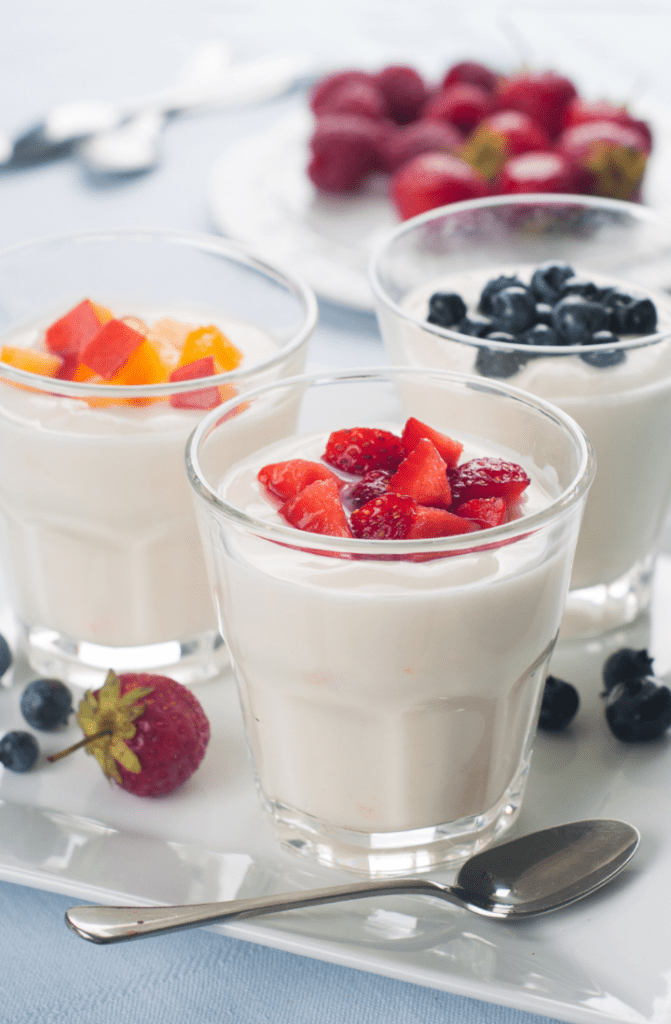
8. Full-fat yogurt
Much like eggs, people often search for low-fat or fat-free yogurts to avoid getting one too high in calories. However, eating full-fat yogurt in moderation has many health benefits. Like cheese, full-fat yogurt contains heart-healthy fats and calcium.
A bonus of consuming yogurt is that it is loaded with gut-healthy probiotics, who doesn’t want a healthy heart and gut?
You can add plain full-fat yogurt to your diet by adding seasonings and using it as a marinade, using it as a topping for soups and other dishes, or topping it with fresh fruit and honey or maple for a healthy sweet treat.
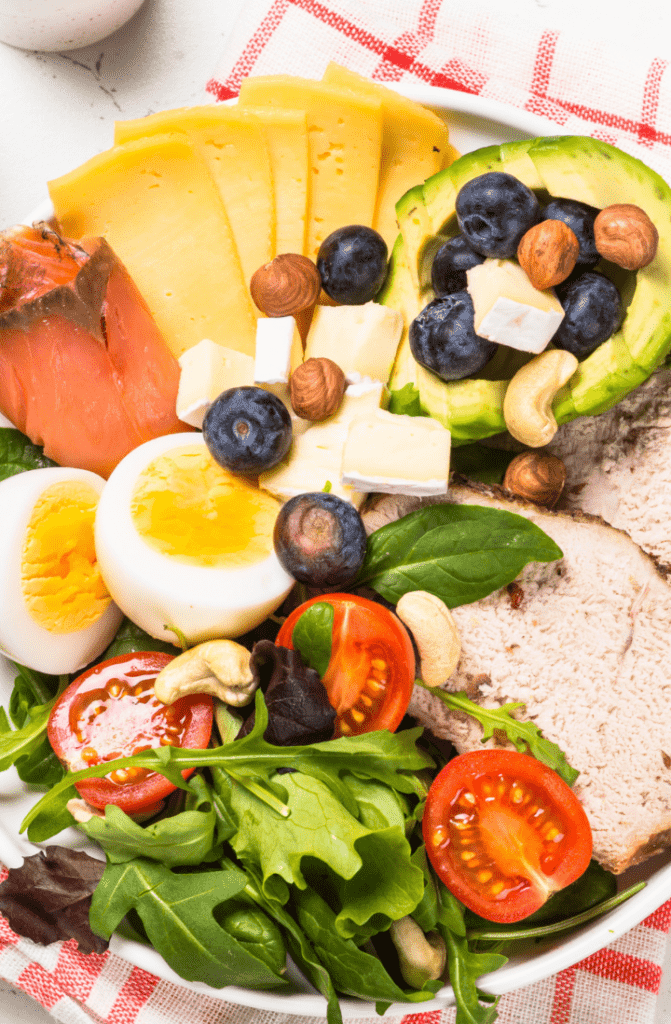
Takeaways
This is only a short list of the best healthy fat foods to add to your diet. There are tons of foods out there that can be added to your daily meals and snacks that will help you to improve or maintain your heart and brain health.
Remember that no food is completely off-limits. All foods are okay in moderation. Focus on adding healthy foods rather than taking foods away.
Enjoy these tips for adding more healthy fats to your diet and check out the blog for more tips on how to eat cleanish and live your happiest healthiest life.

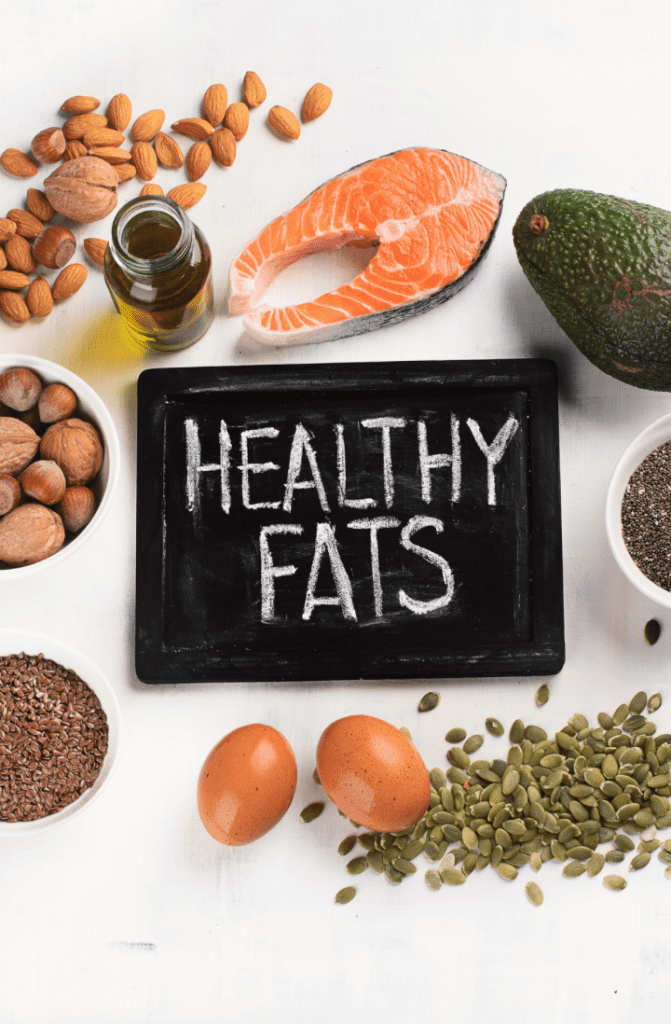
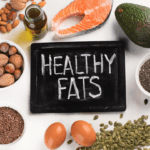
Comments
No Comments